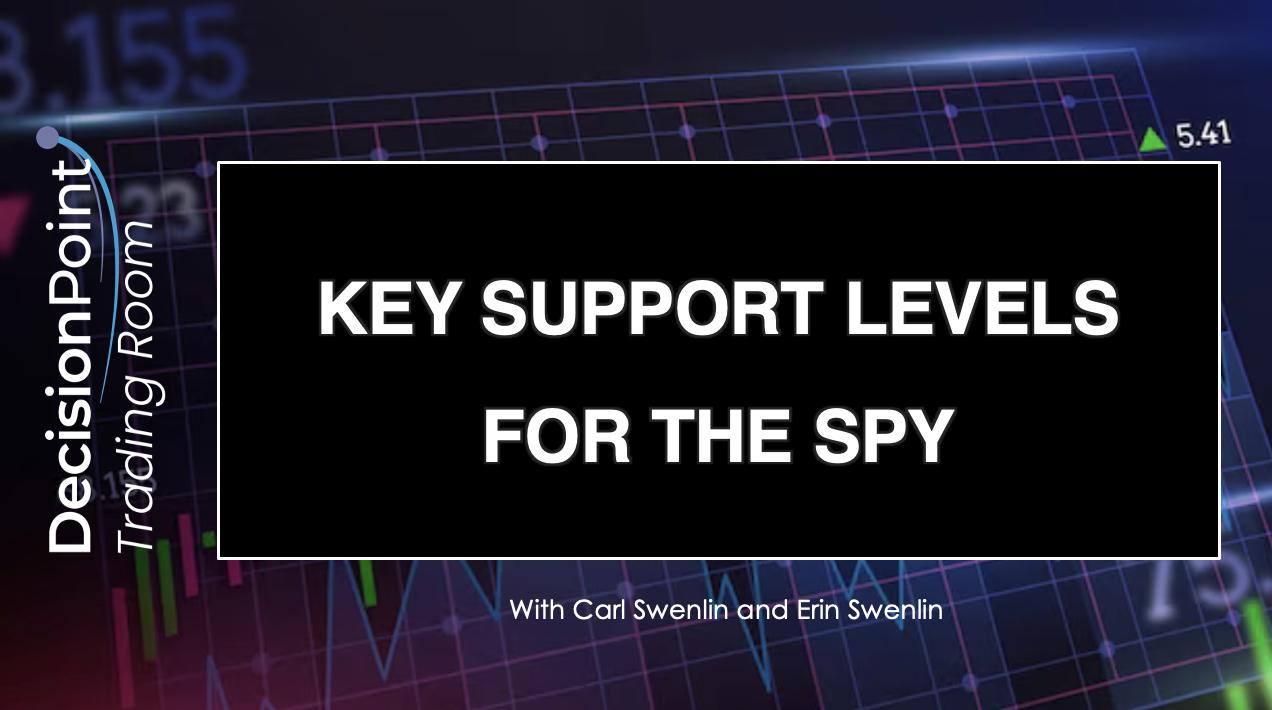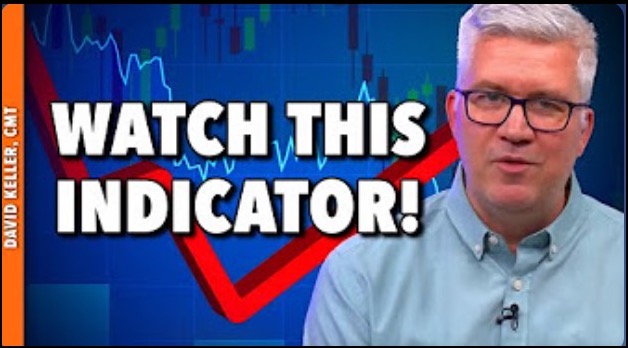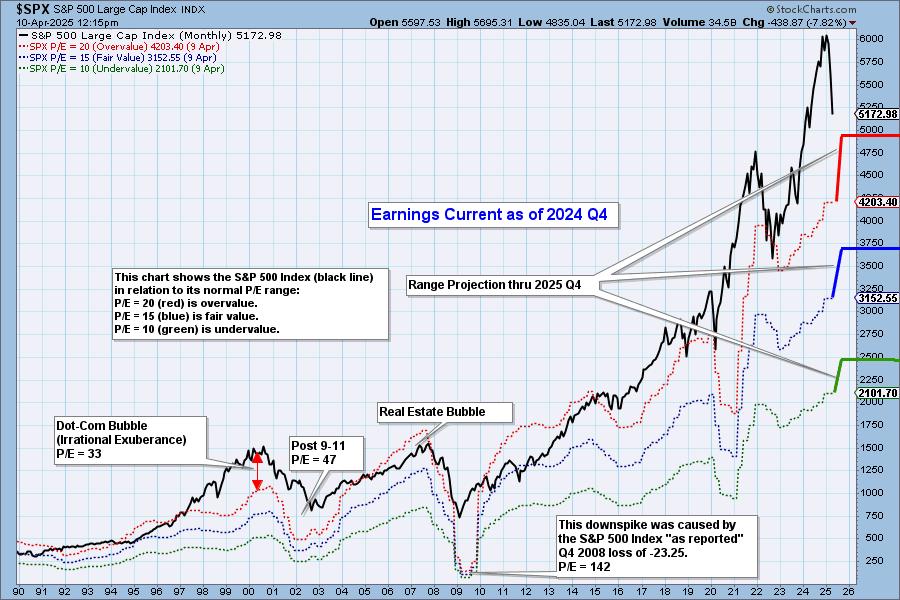Stocks meandered in slow trading on Monday. The Nasdaq 100 ETF (QQQ) edged lower and the S&P 500 ETF (SPY) edged higher. The sectors were mixed with fractional gains and losses. The Retail SPDR (XRT) stood out with a 1% surge that neared its prior highs, while the Regional Bank SPDR (KRE) corrected after a big gain on Friday. The chart below shows the Energy SPDR (XLE) in a short-term downtrend that could be a falling flag. Note that XLE has underperformed the S&P 500 since late August. Relative weakness and weakness in oil could eventually weigh on this sector.
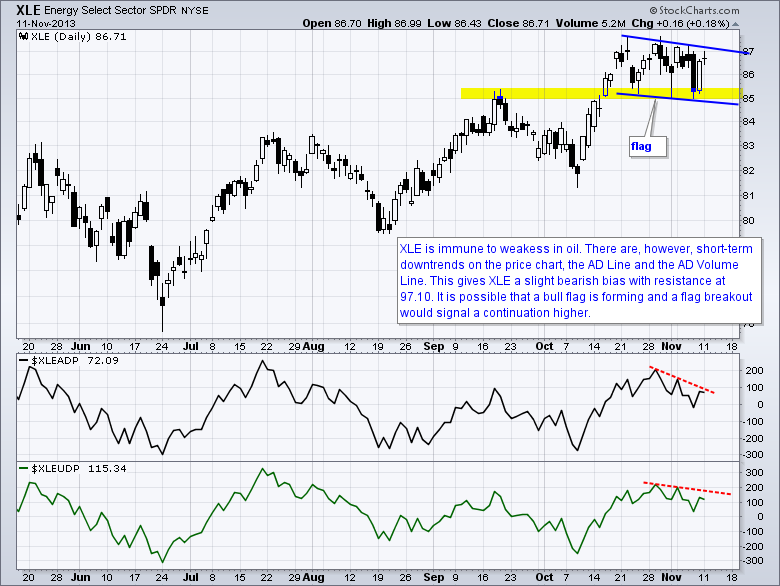
**This chart analysis is for educational purposes only, and should not
be construed as a recommendation to buy, sell or sell-short said securities**

**This chart analysis is for educational purposes only, and should not
be construed as a recommendation to buy, sell or sell-short said securities**
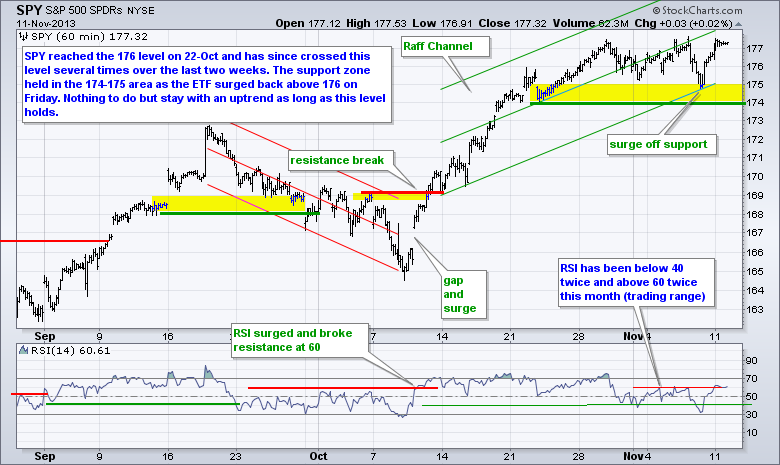
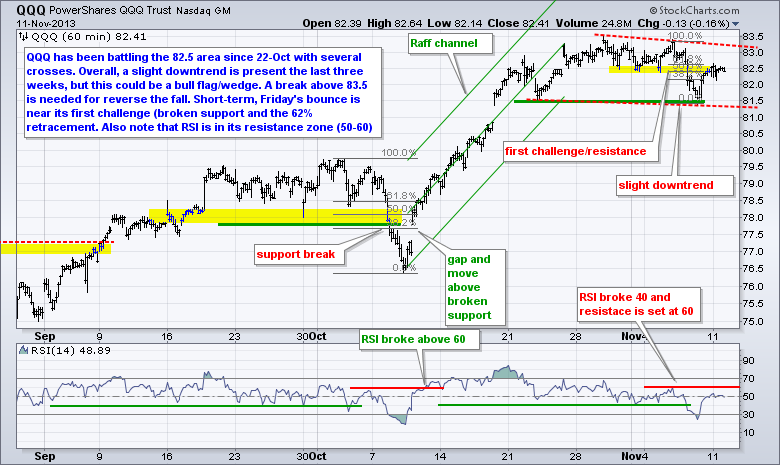
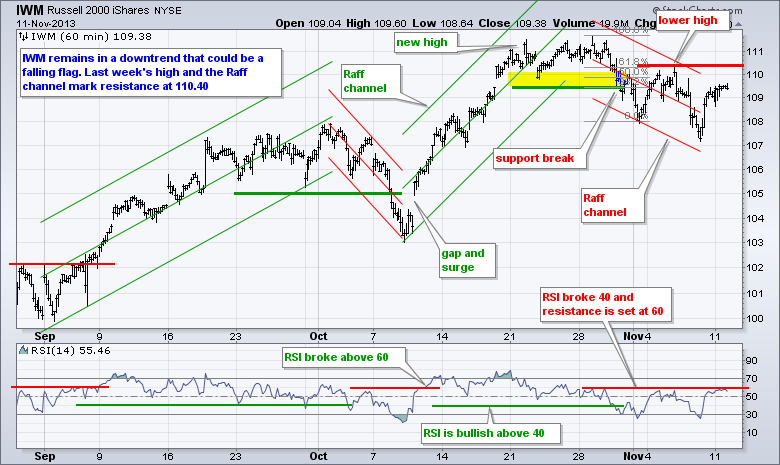
**************************************************************
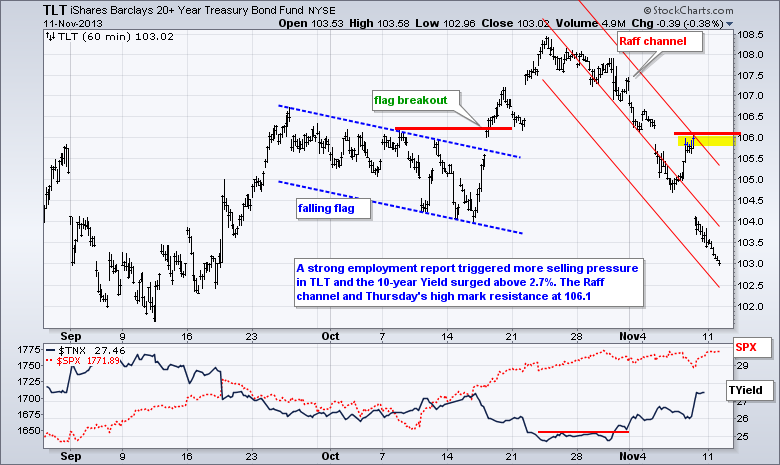
**************************************************************
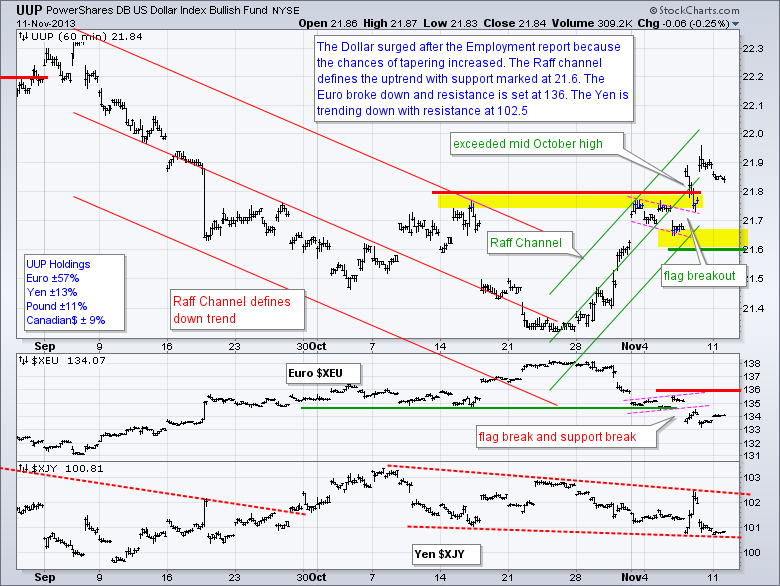
**************************************************************
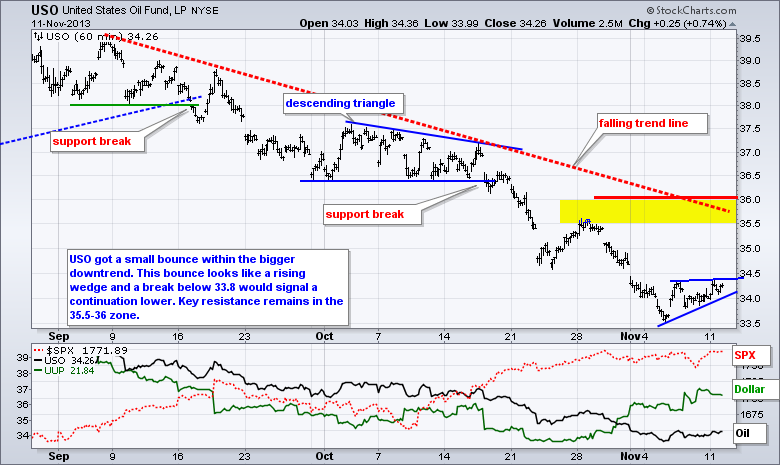
**************************************************************
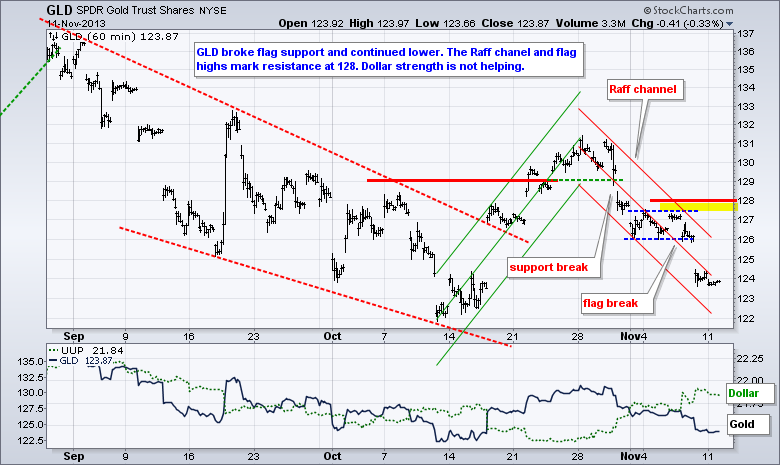
***************************************************************
Key Reports and Events (all times Eastern):
Wed - Nov 13 - 07:00 - MBA Mortgage Index
Wed - Nov 13 - 14:00 - Treasury Budget
Thu - Nov 14 - 08:30 - Initial Claims
Thu - Nov 14 - 08:30 - Trade Balance
Thu - Nov 14 - 10:30 - Natural Gas Inventories
Thu - Nov 14 - 11:00 - Crude Inventories
Fri - Nov 15 - 08:30 - Empire Manufacturing
Fri - Nov 15 - 09:15 - Industrial Production
Fri - Nov 15 - 09:15 - Capacity Utilization
Charts of Interest: Tuesday and Thursday
This commentary and charts-of-interest are designed to stimulate thinking. This analysis is
not a recommendation to buy, sell, hold or sell short any security (stock ETF or otherwise).
We all need to think for ourselves when it comes to trading our own accounts. First, it is
the only way to really learn. Second, we are the only ones responsible for our decisions.
Think of these charts as food for further analysis. Before making a trade, it is important
to have a plan. Plan the trade and trade the plan. Among other things, this includes setting
a trigger level, a target area and a stop-loss level. It is also important to plan for three
possible price movements: advance, decline or sideways. Have a plan for all three scenarios
BEFORE making the trade. Consider possible holding times. And finally, look at overall market
conditions and sector/industry performance.

About the author:
Arthur Hill, CMT, is the Chief Technical Strategist at TrendInvestorPro.com. Focusing predominantly on US equities and ETFs, his systematic approach of identifying trend, finding signals within the trend, and setting key price levels has made him an esteemed market technician. Arthur has written articles for numerous financial publications including Barrons and Stocks & Commodities Magazine. In addition to his Chartered Market Technician (CMT) designation, he holds an MBA from the Cass Business School at City University in London.
Learn More
